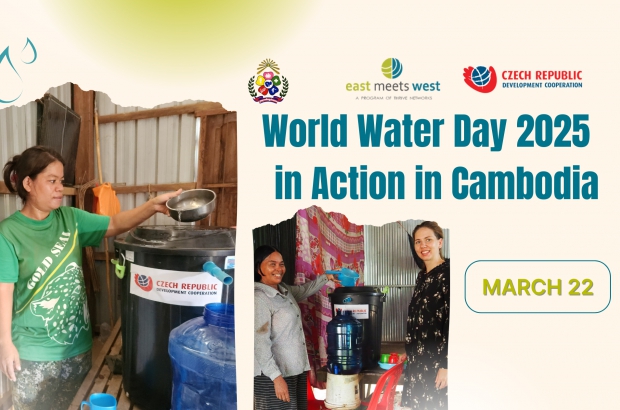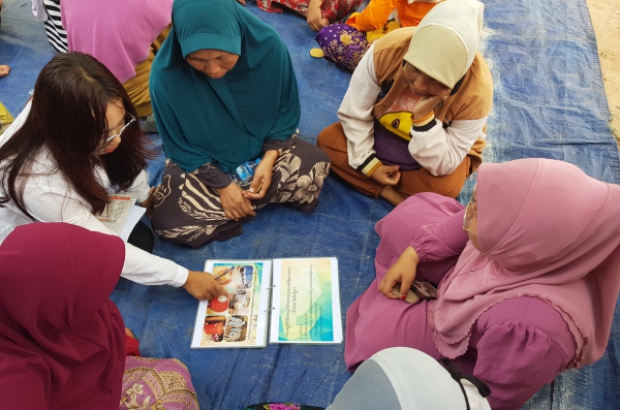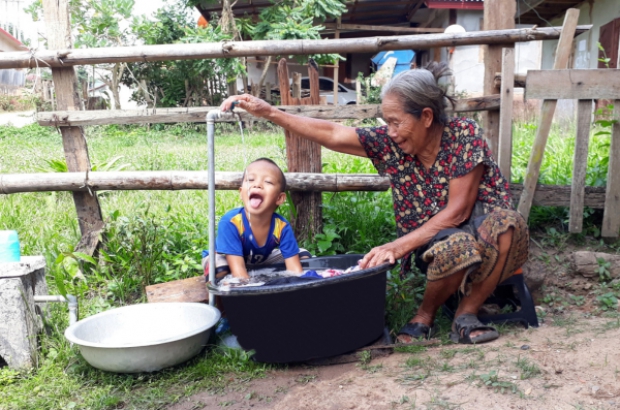Hand washing products and hygiene promotion in rural Vietnam: A case study of the COVID-19 Response in the Women-Led Output-Based Aid (WOBA) Vietnam Project
2331
In align with the Vietnamese government’s response to COVID-19 and the World Health Organization’s recommendations, Thrive Networks/East Meets West Foundation (EMWF) supported the provincial efforts to prevent COVID-19 transmission at the local level through the implementation of a COVID-19 Response project (Phase 1) in the period of May to July 2020, as part of the Women-Led Output-Based Aid Vietnam project, funded by Australian Department of Foreign Affairs and Trade under the Water for Women Fund.
Phase 1 activities included distribution of portable hand washing stations to 172 commune health facilities, 172 kindergartens, 980 disadvantaged households in five provinces of the WOBA project, distribution of water tanks to 200 disadvantaged households in Ben Tre province, and promotional activities to promote handwashing and hygienic practices as representative measures of COVID-19. Following the WOBA project approach, the Vietnam Women Union (WU) was the key partner agency implementing the COVID-19 response.
Using a mixed method case study approach, the study demonstrates positive impacts of the WU’s promotional activities, with “confidence in knowing how to wash hands properly” reported as most significant impact.
Read the full case study at: Hand washing products and hygiene promotion in rural Vietnam.
Related News
3214
Transitioning from external funding to local government fund management
Under the support of the Australian Government Department of Foreign Affairs and Trade through Water for Women Fund, East Meets West Foundation (EMWF) has launched the Community Led, Inclusive, Climate Resilient (CLICR) WASH project in 30 communes across 15 districts and 6 provinces in Cambodia from January 2023 to December 2024. One of the key objectives of this project is to enhance menstrual health and hygiene (MHH) for women and girls while promoting climate resilience.
3499
A Stream of Change: Mrs. Pik’s Water Transformation
After collecting water for consumption and domestic use for more than 70 years, today Mrs. Pik, a 75-year-old widow living in Paklay District, Xayyabouly Province, can remove the heavy bamboo pole and water bucket from her shoulders. During a household visitation, she told East Meets West’s field staff.



